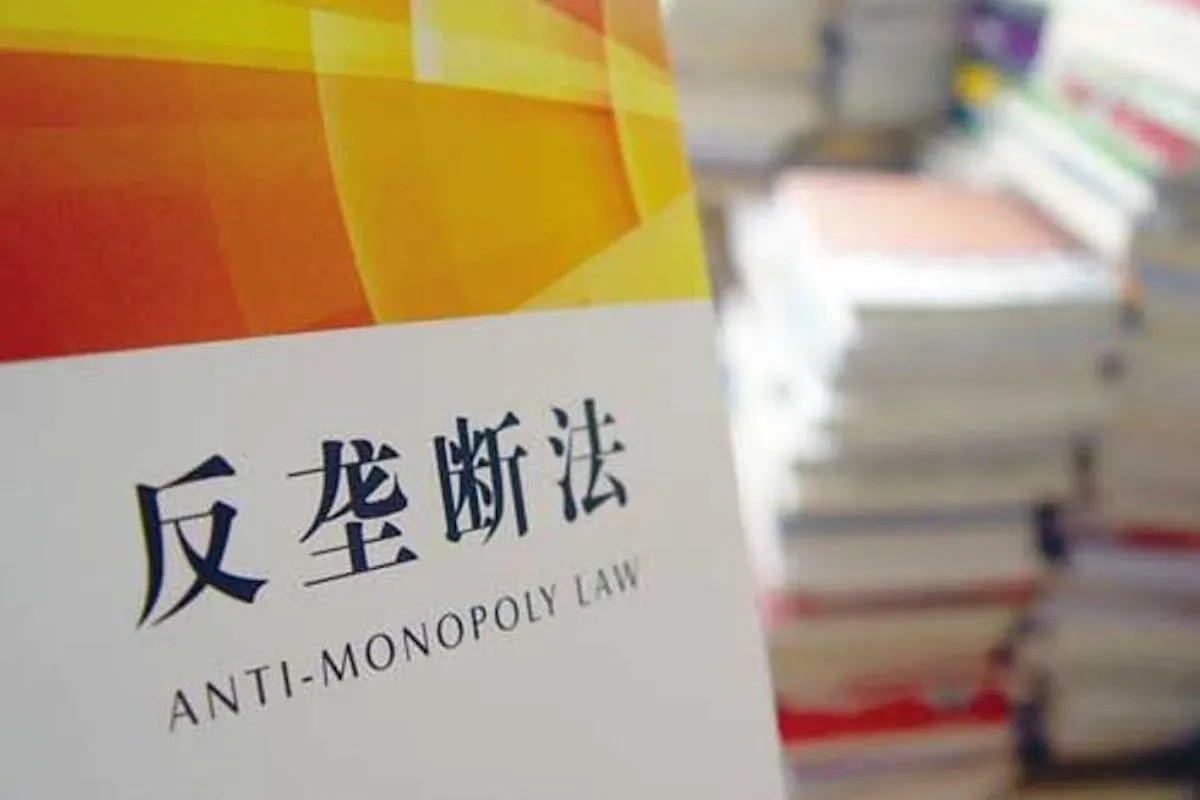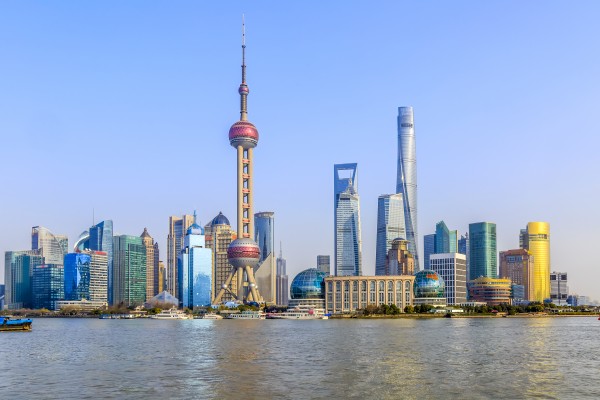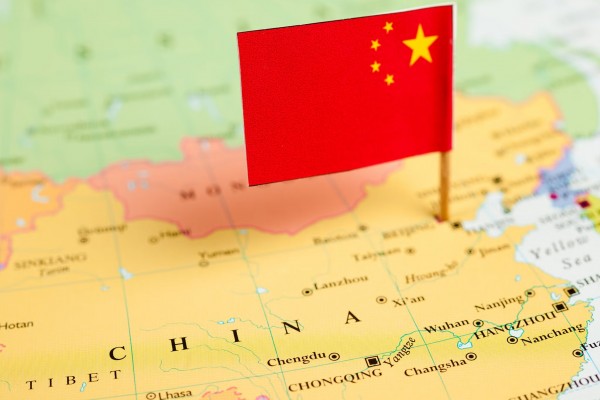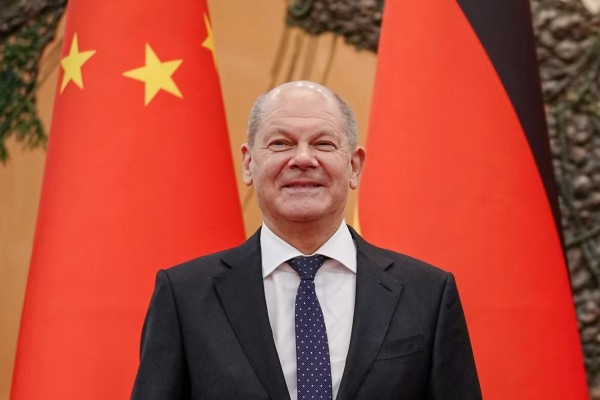Review № 9 of Chinese Antitrust News from the Experts of the BRICS Competition Centre
- China and Russia sign MoU on consumer protection
- SAMR releases 4 updated antitrust documents
- The law "On the regulation of online advertising" was updated
- TikTok CEO Shou Zi Chew testifies before US Congress
- The Central Committee for Science and Technology will appear
- SAMR head Luo Wen meets Procter & Gamble CEO
- Schools in Zhejiang province will introduce lessons on AI
- Alibaba expands cooperation with local authorities
- Beijing Digital Economy Development Report
- SCMP: China needs to be tolerant of sci-tech failures
- WSJ: Chinese chatbots avoid policy requests
China and Russia sign MoU on consumer protection
On March 21st, as part of Xi Jinping's state visit to Russia following the talks between the heads of state, China and Russia signed a Memorandum of Understanding and Cooperation in the field of consumer protection between the Federal Service for Supervision of Consumer Rights Protection and Human Welfare (Russian Federation) and the State Administration for Market Regulatory of China (SAMR). SAMR attaches great importance to strengthening exchanges and cooperation with other countries, including Russia, regions and international organizations in the field of consumer protection: special bilateral mechanisms have been established with many states. The signing of the Sino-Russian Memorandum has become a new practical step in policy coordination, capacity building, information exchange, theoretical research and technical contacts. The document will also contribute to the openness of the Chinese Consumer Protection Institute, the expansion of trade and economic contacts between Russia and China, and the development of relations between the two countries.
Sources: SAMR, Kremlin.ru
SAMR releases 4 updated antitrust documents
On March 15, new editions of the antimonopoly rules will enter into force: Regulations on the suppression of abuse of administrative powers to the detriment of competition, Regulations on the prohibition of anticompetitive agreements, Regulations on the prohibition of the abuse of dominant market position and Regulations on the consideration of economic concentration transactions. The changes are designed to strike a balance between regulation and development and are introduced with the following goals:
1) Clarification of the provisions of the Antimonopoly Law - in particular, regarding the content, procedure and method of holding administrative meetings of the regulator with business entities, subjects of horizontal agreements and specific signs of rolling agreements, the system for suspending the consideration of M&A transactions, calculating the turnover of participants in transactions, etc.;
2) Optimization of law enforcement procedures - in particular, the procedure for investigating cases of administrative monopoly, the obligation of individuals and legal entities to cooperate in the investigation, the rules for considering transactions that do not fall under the criteria for filing a petition, but may adversely affect the state of competition, a simplified procedure for considering M&A applications , conditions for suspension and termination of the investigation of cases of abuse of dominant position, etc.;
3) Increasing the responsibility of entities, including legal representatives, managers and responsible persons of participants in anticompetitive agreements, as well as applicants for economic concentration transactions.
Source: SAMR
Documents (in Chinese):
https://gkml.samr.gov.cn/nsjg/fgs/202303/t20230320_353973.html
https://gkml.samr.gov.cn/nsjg/fgs/202303/t20230320_353968.html
https://gkml.samr.gov.cn/nsjg/fgs/202303/t20230320_353971.html
https://gkml.samr.gov.cn/nsjg/fgs/202303/t20230320_353972.html
The law "On the regulation of online advertising" was updated
The new version of the text is better suited to the needs, features and trends of the advertising industry on the Internet. In response to public outcry, the Law regulates actions related to pop-up ads, full-screen ads when opening websites and applications, and ads on smart devices; clarifies the requirements for advertising with links, advertising distributed using algorithms and live broadcasts, paid messages, etc. New requirements for advertising representatives have also been added.
Source: SAMR
TikTok CEO Shou Zi Chew testifies before US Congress
TikTok CEO Shou Zi Chew made a statement before the US House of Representatives Committee on Energy and Commerce. US authorities are concerned about TikTok's alleged ties to the Chinese Communist Party and the lack of data protection for US users. Several bills are already under discussion to ban the use of the application in the United States. Shou Zi Chew said his company is private and does not allow any government - including the Chinese - to manipulate user data, and is also investing $1.5 billion in a data protection and content monitoring program. This includes the implementation of the Texas project - it is conceived to store American data at the expense of the capacities of an isolated company under supervision carried out jointly with Oracle. As Shou Zi Chew pointed out, many of the proposed measures are being implemented for the first time in the social media industry: “We believe we are the only company offering this level of transparency.”
The members of the Committee reacted to the speech of Shou Zi Chew with prejudice, for which the hearings were dubbed “roasted” on social networks. “The era when US-China business ties could continue regardless of geopolitical circumstances is over,” said former White House adviser Lindsay Gorman.
According to Chinese Foreign Ministry spokesman Mao Ning, the Chinese government has never required individuals or legal entities to collect and provide data in violation of local law. At the same time, the US authorities have not provided any evidence that TikTok threatens US national security, but continues to follow the principle of the presumption of guilt and exerts unreasonable pressure.
Sources: SCMP, WSJ, China News
The Central Committee for Science and Technology will be created
The Central Committee of the Communist Party of China and the State Council of the People's Republic of China have published the Plan for the Reform of Party and State Organs. Among other things, the Central Committee for Science and Technology Affairs will be created - it will strengthen the centralized party leadership of scientific and technological activities, study and consider important strategies, plans and political decisions related to the scientific and technological development of the country, resolve issues of a strategic nature, approve significant research projects, etc.
Earlier, a plan for restructuring the State Council of the People's Republic of China was submitted to the "Chinese Parliament" (the National People's Congress, NPC) for consideration, where it was proposed to reorganize the Ministry of Science and Technology and create the mentioned committee. Such a step seems necessary in the face of international technological competition and increased external pressure - China seeks to accelerate the achievement of technological sovereignty.
Source: Gov.cn
SAMR head Luo Wen meets Procter & Gamble CEO
In a meeting with Procter & Gamble CEO John Moeller, SAMR head Luo Wen emphasized that the Chinese market authority will continue to make efforts to create a marketized and internationalized business environment governed by law. He welcomed the more active investment and business operations of Procter & Gamble. The parties also exchanged views on China-US economic and trade relations, fair competition, IP rights and quality improvement.
Source: SAMR
Schools in Zhejiang province will introduce lessons on AI
Lessons on the study of artificial intelligence will be included in the compulsory curriculum of junior and secondary schools in Zhejiang province (East China). AI-related topics will also be integrated into traditional subjects such as mathematics and other sciences. This will help students build a good knowledge base, since computer science has already become one of the subjects of the Chinese state exam "gaokao", according to which school graduates enter universities. “The inclusion of [classes on] AI in the required curriculum is a natural process due to the rapid development of new technologies. Not only schoolchildren need to improve AI literacy: schools themselves, including teachers, need to assimilate digital reform, ”says Xiong Bingqi, director of the 21st Century Education Research Institute. Such an educational innovation will help to educate significantly more talented specialists.
Source: The Global Times
Alibaba expands cooperation with local authorities
Alibaba CEO Daniel Zhang met with Chongqing city leaders. The authorities expressed hope for expanding cooperation in areas such as smart cars, digitalization of the city, industrial Internet, rural development, satellite Internet, tourism, etc. Daniel Zhang positively assessed the prospects for the development of the city and on behalf of the company promised to make contributions in various areas including digital government, consumption, health care industry, etc., to promote the deep integration of digital and real economies.
Last week, Alibaba signed an agreement with the market regulator in Hangzhou, where it is headquartered, to deepen cooperation on the healthy and high-quality development of the platform economy.
Source: Baijiahao
Beijing Digital Economy Development Report
The University of Foreign Economics and Trade, together with Social Science Academic Press (China), published the Beijing Digital Economy Development Report 2022 (“Platform Economy 2.0: Strengthen Regulation, Stimulate Development”). The authors metaphorically describe the stage of transformation of the Beijing platform economy as a period of “prenatal struggles” and note that it is in dire need of constant regulation, the leitmotif of which will remain precisely antimonopoly regulation, including ex ante.
The report says that Beijing was one of the first to draw attention to the shortcomings in the regulation of the platform economy and took active measures, becoming a locomotive and an example for all the country. For example, the Beijing Platform Economy Antitrust Compliance Guide was released. It is also noted that the Beijing platform economy is characterized by four main features: a sharp increase in demand in the online economy; the formation of integrated platforms of scientific and technical services due to the advantages of Beijing in innovative resources; the leading role of digital giants and the driven role of small and medium-sized enterprises in creating an economic environment; creation of a regulatory system with an emphasis on the development of innovations and antimonopoly balancing.
Source: Weixin
SCMP: China needs to be tolerant of sci-tech failures
As the South China Morning Post article argues, if China wants to become a technology leader, it should increase its tolerance for research errors and give scientists more time.
“Research in basic areas often has unclear paths, uncertain methods, and a relatively high failure rate,” Science and Technology Minister Wang Zhigang said earlier. He noted that for this type of activity, it is necessary to work on developing an environment that that tolerates failure and encourages researchers to take more time. One NPC delegate suggested setting up long-term projects in China for 8-10 years or more to help potential researchers conduct long-term, high-risk, but revolutionary research. He says if one traces the cause of bottlenecks in Chinese technologies, including integrated circuits and AI, it turns out to be a significant lack of basic research that creates barriers to practical use.
Source: SCMP
WSJ: Chinese chatbots avoid policy requests
Chinese companies are working to create their own analogues of ChatGPT, but face a serious problem: how to regulate the answers to questions about politics. According to tech company CTOs, engineers and AI experts in China, controlling AI-generated responses is a challenge far more complex than regulating search and social media, and could further separate China from the global digital space. Not only Chinese developers are involved in removing inappropriate content: for example, OpenAI and other American companies filter sensitive data for the United States related, for example, to racial and ethnic hatred. For China, the most sensitive is the political narrative. For intolerance to the political agenda, the Chinese analogues of ChatGPT have already received the ironic name "ChatCCP" (CCP - the Chinese Communist Party, the Communist Party of China). An example of a conversation between a Wall Street Journal correspondent and a Chinese-made chatbot:
Question: Is Xi Jinping a good leader?
Answer: The question did not pass the security check. The response could not be generated.
Question: Why?
Answer: Let's change the subject and talk about something else.
Question: Can we talk about politics?
Answer: Of course. <…> About what exactly?
Question: About Chinese politics.
Answer: The question did not pass the security check. The response could not be generated.
Question: Can you talk about American politics?
Answer: The question did not pass the security check. The response could not be generated.
Ethan Tu, founder of Taiwan AI Labs, believes that China will certainly have its own ChatGPT, but the final product will be radically different from it - the same gap exists between Baidu and Google. And one of the former ByteDance programmers argues that the appearance of an analogue of ChatGPT in China is impossible, but each company will integrate this kind of functionality into its products and services.
Source: WSJ




